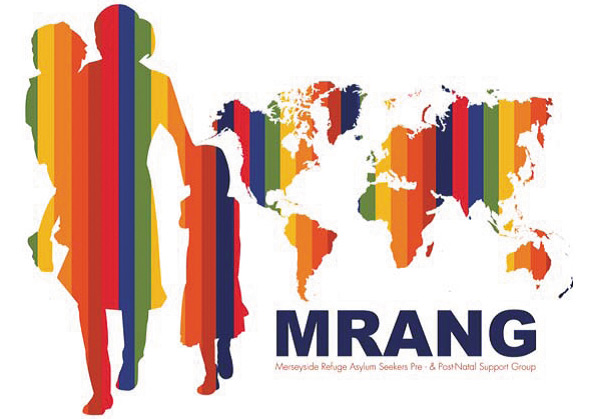By Dee Coombes
I hadn’t been to the Merseyside Refugee & Asylum Seekers Pre & Post Natal Support Group (MRANG) for more than 10 years. Back then it was in another church hall in another part of the city, and it could be pretty chaotic – lots of mainly African women with their babies and toddlers chatting to volunteers or each other, amidst bundles of clothes and boxes of toys, and nappies and other necessities. Women speaking earnestly with volunteers, trying to sort out the tangles of housing, money for living, and medical care, and the ever-present threat of being returned to the country of origin.
I wasn’t sure what to expect after all this time when I went to one of their centres. I passed a beaming woman in a headscarf on her way out, and went through the front door with another, into a room full of chatter and laughter, whoops from children and the smell of pancakes. I’d come at half-term and it was a lot busier than usual. MRANG has grown up a lot now; instead of bundles and bags of clothes, there were tables the length of the room, piled high and supervised by a former client, now a volunteer. None of them would be touched until after the lunch of pancakes, salad, fruit and cheese had been eaten. The lunch was served to the women and their children by the volunteers who’d cooked it – a courtesy that touched me.
I wandered about past volunteers sitting at tables, helping women to navigate the forms that could make a world of difference to their living conditions, their benefits, their hospital appointments, their baby clinic appointments. Now, instead of mainly African women, there are many different nationalities and cultures represented in the group. I am told MRANG works with women from over 40 nationalities and even more dialects. This can make communication challenging but MRANG offers English classes in another session and the women find other ways to communicate within the group.
The factors which drive women to seek asylum are many and varied; amongst them, gender and honour based violence within communities and families. It takes courage to make a journey into the unknown with your small children or during pregnancy, and that can often use the last resources a woman has, leaving her in great need of support and even more help than usual in navigating the pitfalls of the asylum system. Fifteen years ago, when I worked for immigrational solicitors, there was legal aid for medical assessments, psychological reports, a legal representative and your own interpreter (to check what the Home Office’s interpreter was saying) at your Asylum interview, and even then, the system could fail women. Today the provision has been stripped to its bare bones despite the continuing need for legal support. The family support team at MRANG help women access what they are entitled to; but it is an uphill struggle when provision is shrinking.
Drop-in is shaped by the women who attend and acts as a hub of peer and professional support for families at all stages of the asylum process. MRANG women can access casework and enjoy recreational activities in a female only safe space which is welcoming and child friendly. Some women will go on to become service-user volunteers, and MRANG welcomes back many of the same women every week, alongside registering an average of 40 new clients per month.
Most of the women, if it was safe, would like to go home. Many miss their extended family, their friends, their food, the weather, the smells of home, the music of their own language. Most would like to work, to be independent, and to feel respected.
MRANG is now working to bring its unique service to all women asylum seekers being dispersed across the region, providing three drop-ins per week, family support, perinatal support and education classes and is always in need of financial donations. There is a pretty shabby safety net provided by the state for women who mostly never expected or wanted to make this journey into an unknown land of strangers, but life is a precious thing, especially when it’s the life of your child.
MRANG, The Florrie , 377 Mill Street, Liverpool, L8 4RF
Telephone: 0151 728 2323
Email: info@mrang.org.uk
